11 Foods To Help You Build Muscle And Tone
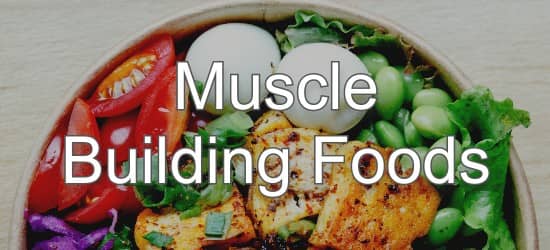
One common reason that people want to build muscle is to bulk up and improve their physique and strength, also known as bodybuilding.
Increasing muscle is also beneficial for weight management. Muscle is an "active tissue," meaning that it uses a significant amount of energy even while the muscles are resting. Increasing your muscle mass, therefore, means your body burns more calories at rest. This can help you both lose weight and keep it off.
Maintaining muscle mass is also beneficial for the aging process. As we get older, we naturally lose some of our muscle mass and strength. Starting around the age of 30, we lose approximately 3-8% of our muscle mass every decade, and after age 60, that rate increases even more. (1)
A loss of muscle mass, known as sarcopenia, is associated with several negative health outcomes, including an increased risk of cognitive impairment, diabetes, high blood pressure, and even death. (2) Sarcopenia can also lead to falls, and generally impairs a person's ability to function and their quality of life. (2) It is therefore beneficial to try and minimize the loss of muscle to maintain good health as we age.
When trying to gain muscle, it is essential to get enough protein, both throughout the day and immediately after workouts. The International Society for Sports Nutrition recommends 1.4 grams to 2 grams of protein per kg body weight per day for muscle building. The exact amount will depend on factors such as gender, body size, and activity levels. (3)
The recommended muscle-building foods below include both plant and animal sources. These include: whey powder, tofu, peas, milk, beans, lentils, eggs, and fish. To build muscle, these foods should be eaten in combination with regular resistance exercise.
Resistance exercise is any type of exercise that causes muscles to contract against a force or resistance. This can be free weights, weight machines, or your own body weight. Examples include weight lifting, pulling resistance bands, squats, lunges, push-ups, and even certain yoga poses. Resistance exercise builds and tones muscles and makes them stronger, as well as increasing bone strength.
For good cardiovascular health, it is also recommended to include 150 minutes of aerobic exercise per week, like walking, running, cycling, or swimming.
There is some debate about animal vs. vegetarian protein sources. Many bodybuilders are convinced that animal protein is required to build muscle. There are, however, many successful vegan bodybuilders and athletes, and some bodybuilders are also concerned that inflammation caused by animal proteins might actually hinder performance. For this reason, the following list contains a mixture of both animal and plant-based proteins. If you do consume animal foods, it is generally healthy to include a mixture of both plant and animal proteins in your diet.
These muscle-building foods are all high in protein, easy to prepare, and have other health benefits beyond just their high protein content.
Foods to Help You Build Muscle
-
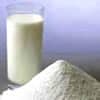 1. Whey + Add
Whey protein is a mixture of some of the proteins naturally occurring in milk and is a common ingredient in protein supplements and meal replacements. It is particularly rich in two proteins called beta-lactoglobulin and alpha-lactalbumin. Whey has one of the highest protein bioavailability scores of all foods and is more rapidly digested than other proteins such as casein, (4) making it a favorite amongst bodybuilders. Research shows that whey protein in combination with resistance exercise increases muscle mass. (5,6)
1. Whey + Add
Whey protein is a mixture of some of the proteins naturally occurring in milk and is a common ingredient in protein supplements and meal replacements. It is particularly rich in two proteins called beta-lactoglobulin and alpha-lactalbumin. Whey has one of the highest protein bioavailability scores of all foods and is more rapidly digested than other proteins such as casein, (4) making it a favorite amongst bodybuilders. Research shows that whey protein in combination with resistance exercise increases muscle mass. (5,6)
Nutrition Facts for Whey - Fast Digesting Whey Protein. -
 2. Tofu + Add
Tofu is a top vegetarian source of protein. All types of protein supply the body with the amino acid building blocks required to form new muscle, but some foods contain a better profile of amino acids than others. Tofu provides good amounts of essential amino acids, which are those amino acids that must be obtained through diet, because the body cannot manufacture them. (7) In one study, soy protein was comparable to whey protein in preventing exercise-induced muscle damage and aiding recovery in soccer players. (8)
2. Tofu + Add
Tofu is a top vegetarian source of protein. All types of protein supply the body with the amino acid building blocks required to form new muscle, but some foods contain a better profile of amino acids than others. Tofu provides good amounts of essential amino acids, which are those amino acids that must be obtained through diet, because the body cannot manufacture them. (7) In one study, soy protein was comparable to whey protein in preventing exercise-induced muscle damage and aiding recovery in soccer players. (8)
Nutrition Facts for Firm Tofu. -
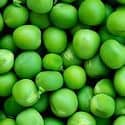 3. Peas + Add
A cup of cooked green peas contains nearly 9 grams of protein. Pea protein powder is gaining popularity as a vegan protein source. One study found that pea protein in combination with resistance training promoted a greater increase in muscle thickness after 12 weeks, compared with just training alone (and a placebo, which did not contain pea protein). The results were particularly pronounced in people starting or returning to training after a break, and were comparable to a third group who took whey protein. (9)
3. Peas + Add
A cup of cooked green peas contains nearly 9 grams of protein. Pea protein powder is gaining popularity as a vegan protein source. One study found that pea protein in combination with resistance training promoted a greater increase in muscle thickness after 12 weeks, compared with just training alone (and a placebo, which did not contain pea protein). The results were particularly pronounced in people starting or returning to training after a break, and were comparable to a third group who took whey protein. (9)
Nutrition Facts for Cooked Green Peas (Boiled, Drained). -
 4. Milk + Add
Milk is packed with amino acids and makes a great post-workout recovery drink. According to research, milk may be even better than sports drinks at aiding recovery after exercise. (10) Milk increases muscle protein synthesis (9,11) post-exercise while reducing muscle soreness and loss of function. It also re-hydrates the body very well, being approximately isotonic, meaning that its salt content is similar to that of blood. In addition, due to the sugars in milk, it contributes to replenishing glycogen (energy) stores that are used during exercise. (10)
4. Milk + Add
Milk is packed with amino acids and makes a great post-workout recovery drink. According to research, milk may be even better than sports drinks at aiding recovery after exercise. (10) Milk increases muscle protein synthesis (9,11) post-exercise while reducing muscle soreness and loss of function. It also re-hydrates the body very well, being approximately isotonic, meaning that its salt content is similar to that of blood. In addition, due to the sugars in milk, it contributes to replenishing glycogen (energy) stores that are used during exercise. (10)
Nutrition Facts for Skim Milk. -
 5. Beans and Lentils + Add
Pulses are a group of plant foods that includes beans, lentils, and chickpeas. They provide a healthy dose of plant-based protein for muscle building. Beans are also a great energy source, as they contain slow-releasing carbohydrates and fiber, which help keep blood sugar levels balanced to fuel your workouts. Pulses also supply magnesium, an essential nutrient for muscle function, which may also enhance exercise performance. (12)
5. Beans and Lentils + Add
Pulses are a group of plant foods that includes beans, lentils, and chickpeas. They provide a healthy dose of plant-based protein for muscle building. Beans are also a great energy source, as they contain slow-releasing carbohydrates and fiber, which help keep blood sugar levels balanced to fuel your workouts. Pulses also supply magnesium, an essential nutrient for muscle function, which may also enhance exercise performance. (12)
Nutrition Facts for Cooked Lentils (Boiled) (Mature Seeds). -
 6. Almonds + Add
Almonds make a great portable, post-workout snack for when you're on the go. Almonds have the highest protein content of all nuts (except peanuts, which are not technically nuts, but legumes - see below); a handful of almonds contains around 6g of protein. Almonds also have a high satiety value, meaning that they keep you feeling full and satisfied and help to control appetite. (13,14) This is beneficial for anyone looking to build muscle and reduce body fat simultaneously. Almonds are another great source of magnesium.
6. Almonds + Add
Almonds make a great portable, post-workout snack for when you're on the go. Almonds have the highest protein content of all nuts (except peanuts, which are not technically nuts, but legumes - see below); a handful of almonds contains around 6g of protein. Almonds also have a high satiety value, meaning that they keep you feeling full and satisfied and help to control appetite. (13,14) This is beneficial for anyone looking to build muscle and reduce body fat simultaneously. Almonds are another great source of magnesium.
Nutrition Facts for Almonds. -
 7. Eggs + Add
Eggs offer a powerful dose of high-quality protein. One egg contains around 6g of protein. Eggs also provide choline, which may improve athletic performance and reduce fatigue (15). Choline is also necessary for communication between the nervous system and the muscles. Furthermore, eggs can be beneficial for appetite control and weight management. (16,17)
7. Eggs + Add
Eggs offer a powerful dose of high-quality protein. One egg contains around 6g of protein. Eggs also provide choline, which may improve athletic performance and reduce fatigue (15). Choline is also necessary for communication between the nervous system and the muscles. Furthermore, eggs can be beneficial for appetite control and weight management. (16,17)
Nutrition Facts for Hard Boiled Eggs. -
 8. Fish + Add
Fish provides all the protein of red meat, without the saturated fat. White fish is high in protein and low in fat, while oily fish, such as salmon, mackerel, and sardines contain omega-3 fatty acids, which aid protein metabolism for effective muscle growth. Studies have shown that omega-3 supplements stimulate muscle protein synthesis in older adults (18), as well as young and middle-aged adults. (19)
8. Fish + Add
Fish provides all the protein of red meat, without the saturated fat. White fish is high in protein and low in fat, while oily fish, such as salmon, mackerel, and sardines contain omega-3 fatty acids, which aid protein metabolism for effective muscle growth. Studies have shown that omega-3 supplements stimulate muscle protein synthesis in older adults (18), as well as young and middle-aged adults. (19)
Nutrition Facts for Cooked Bluefin Tuna. -
 9. Quinoa + Add
Quinoa is botanically a seed , though it's eaten as a grain. It is packed with protein, fiber, vitamins, minerals, and antioxidants, plus all the amino acids needed for muscle growth. In fact, quinoa is the ideal grain for anyone looking to build muscle, as the amino acids are well absorbed making it a high-quality protein. (20) It is also an excellent energy food, containing slow-releasing carbohydrates. It also provides magnesium and iron, which are required for muscle function and maintaining energy levels.
9. Quinoa + Add
Quinoa is botanically a seed , though it's eaten as a grain. It is packed with protein, fiber, vitamins, minerals, and antioxidants, plus all the amino acids needed for muscle growth. In fact, quinoa is the ideal grain for anyone looking to build muscle, as the amino acids are well absorbed making it a high-quality protein. (20) It is also an excellent energy food, containing slow-releasing carbohydrates. It also provides magnesium and iron, which are required for muscle function and maintaining energy levels.
Nutrition Facts for Quinoa, cooked. -
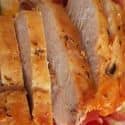 10. Chicken + Add
Chicken and other poultry are a great low-fat protein source; an average chicken breast contains around 50g protein. Poultry is also a top source of the amino acid leucine, an essential branched-chain amino acid (BCAA) that helps prevent age-related muscle loss (21) and may stimulate muscle growth in younger people, although the evidence for these claims is not conclusive. (22,23) Animal foods also provide vitamin B12, required for repairing damaged cells and for red blood cell production.
10. Chicken + Add
Chicken and other poultry are a great low-fat protein source; an average chicken breast contains around 50g protein. Poultry is also a top source of the amino acid leucine, an essential branched-chain amino acid (BCAA) that helps prevent age-related muscle loss (21) and may stimulate muscle growth in younger people, although the evidence for these claims is not conclusive. (22,23) Animal foods also provide vitamin B12, required for repairing damaged cells and for red blood cell production.
Nutrition Facts for Cooked Lean Chicken Breast. -
 11. Peanuts and Peanut Butter + Add
Peanuts and peanut butter are not technically nuts, but legumes (from the same family as beans and lentils), which account for their higher protein content compared with other common nuts. Peanuts and peanut butter contain around 24g protein per 100g, compared with pistachios 21g, cashews 15g, and pecans 9g. In one study, elderly patients were given peanut protein in combination with resistance training for 6 weeks, and this led to significant increases in both muscle growth and strength. (24)
11. Peanuts and Peanut Butter + Add
Peanuts and peanut butter are not technically nuts, but legumes (from the same family as beans and lentils), which account for their higher protein content compared with other common nuts. Peanuts and peanut butter contain around 24g protein per 100g, compared with pistachios 21g, cashews 15g, and pecans 9g. In one study, elderly patients were given peanut protein in combination with resistance training for 6 weeks, and this led to significant increases in both muscle growth and strength. (24)
Nutrition Facts for Peanut Butter (Chunk Style).
Tips for Building Muscle
- The American College of Sports Medicine recommends resistance training (such as weight lifting) to build muscle. This involves training each muscle group two or three times per week on non-consecutive days, by doing 8-12 repetitions per set and 2-4 sets of each different exercise.
- Don't forget to incorporate rest days between your training days, as they are essential to building muscle. In fact, it is during rest periods that new muscle formation takes place.
- Caffeine enhances muscle strength, so it can boost your workout and may also decrease muscle soreness post-workout. Take it easy, though, as too much caffeine can actually cause fatigue in the long term.
- Vitamin C supplements may speed up muscle recovery and reduce pain after intensive workouts. (25,26) The best way to get plenty of vitamin C is to eat 10 servings of fruit and vegetables per day.
- 70% of muscle mass is made up of water, and water is essential for building healthy muscles. Hydration is also key to exercise performance and maintaining physical and mental energy. Requirements increase with activity levels and hot weather, so drink accordingly.
Related
Data Sources and References
- Dreyer HC, Volpi E. Muscle tissue changes with aging J Am Coll Nutr. 2005 Apr;24(2):140S-145S. doi: 10.1080/07315724.2005.10719455. 15798081
- Yuan S, Larsson SC. Epidemiology of sarcopenia: Prevalence, risk factors, and consequences Metabolism. 2023 Jul;144:155560. doi: 10.1016/j.metabol.2023.155560. Epub 2023 Apr 15. 37068602
- Kerksick CM, Arent S, Schoenfeld BJ, Stout JR, Campbell B, Wilborn CD, Taylor L, Kalman D, Smith-Ryan AE, Kreider RB, Willoughby D, Arciero PJ, VanDusseldorp TA, Ormsbee MJ, Wildman R, Greenwood M, Ziegenfuss TN, Aragon AA, Antonio J. International Society of Sports Nutrition Position Stand: protein and exercise J Int Soc Sports Nutr. 2017 Aug 29;14:33. doi: 10.1186/s12970-017-0189-4. eCollection 2017. 28919842
- Dangin M, Guillet C, Garcia-Rodenas C, Gachon P, Bouteloup-Demange C, Reiffers-Magnani K, Fauquant J, Ballèvre O, Beaufrère B. Influence of the protein digestion rate on protein turnover in young and elderly subjects J Physiol. 2003 Jun 1;549(Pt 2):635-44. doi: 10.1113/jphysiol.2002.036897. Epub 2003 Mar 28. 12665610
- Kerksick CM, Rasmussen CJ, Lancaster SL, Magu B, Smith P, Melton C, Greenwood M, Almada AL, Earnest CP, Kreider RB. The effect of whey protein supplementation with and without creatine monohydrate combined with resistance training on lean tissue mass and muscle strength J Strength Cond Res. 2006 Aug;20(3):643-53. 16937979
- Lockwood CM, Roberts MD, Dalbo VJ, Smith-Ryan AE, Kendall KL, Moon JR, Stout JR. Effects of whey protein supplementation prior to, and following, resistance exercise on body composition and training responses: A randomized double-blind placebo-controlled study J Am Coll Nutr. 2017 Jan;36(1):16-27. doi: 10.1080/07315724.2016.1140094. Epub 2016 Oct 6. 27710436
- Gilani GS. Protein digestibility-corrected amino acid scores (PDCAAS) for soy protein isolates and concentrate: criteria for evaluation Br J Nutr. 2012 Aug;108 Suppl 2:S168-82. doi: 10.1017/S0007114512002383. 23107528
- Kotsis Y, Mikellidi A, Aresti C, Persia E, Sotiropoulos A, Panagiotakos DB, Antonopoulou S, Nomikos T. Effect of whey vs. soy protein supplementation on recovery kinetics following speed endurance training in competitive male soccer players: a randomized controlled trial Eur J Nutr. 2018 Apr;57(3):1181-1195. doi: 10.1007/s00394-017-1401-7. Epub 2017 Mar 11. 28285432
- Duarte NM, Cruz AL, Silva DC, Cruz GM. Pea proteins oral supplementation promotes muscle thickness gains during resistance training: a double-blind, randomized, Placebo-controlled clinical trial vs. Whey protein J Sports Med Phys Fitness. 2020 Jan;60(1):75-84. doi: 10.23736/S0022-4707.19.09741-X. Epub 2019 Sep 23. 31565912
- Kerksick CM, Arent S, Schoenfeld BJ, Stout JR, Campbell B, Wilborn CD, Taylor L, Kalman D, Smith-Ryan AE, Kreider RB, Willoughby D, Arciero PJ, VanDusseldorp TA, Ormsbee MJ, Wildman R, Greenwood M, Ziegenfuss TN, Aragon AA, Antonio J. Cow's milk as a post-exercise recovery drink: implications for performance and health J Int Soc Sports Nutr. 2017 Aug 29;14:33. doi: 10.1186/s12970-017-0189-4. eCollection 2017. 28919842
- Tipton KD, Elliott TA, Cree MG, Aarsland AA, Sanford AP, Wolfe RR. Milk ingestion stimulates net muscle protein synthesis following resistance exercise Am J Physiol Endocrinol Metab. 2007 Jan;292(1):E71-6. doi: 10.1152/ajpendo.00166.2006. Epub 2006 Aug 8. 16896166
- Veronese N, Berton L, Carraro S, Bolzetta F, De Rui M, Perissinotto E, Toffanello ED, Bano G, Pizzato S, Miotto F, Coin A, Manzato E, Sergi G. Can Magnesium Enhance Exercise Performance? Am J Clin Nutr. 2014 Sep;100(3):974-81. doi: 10.3945/ajcn.113.080168. Epub 2014 Jul 9. 25008857
- Hull S, Re R, Chambers L, Echaniz A, Wickham MS. Appetitive, dietary and health effects of almonds consumed with meals or as snacks: a randomized, controlled trial Eur J Nutr. 2015 Aug;54(5):803-10. doi: 10.1007/s00394-014-0759-z. Epub 2014 Sep 3. 25182142
- Brown R, Ware L, Gray AR, Chisholm A, Tey SL. A mid-morning snack of almonds generates satiety and appropriate adjustment of subsequent food intake in healthy women Int J Environ Res Public Health. 2021 Oct 19;18(20):10989. doi: 10.3390/ijerph182010989. 34682735
- Peters EM. Choline: an important micronutrient for maximal endurance-exercise performance? Curr Opin Clin Nutr Metab Care. 2003 Jul;6(4):427-34. doi: 10.1097/01.mco.0000078986.18774.90. 12806217
- Ratliff J, Leite JO, de Ogburn R, Puglisi MJ, VanHeest J, Fernandez ML. Short-term effect of eggs on satiety in overweight and obese subjects Nutr Res. 2010 Feb;30(2):96-103. doi: 10.1016/j.nutres.2010.01.002. 20226994
- Borzoei S, Neovius M, Barkeling B, Teixeira-Pinto A, Rössner S. The effects of consuming eggs for lunch on satiety and subsequent food intake Eur J Clin Nutr. 2006 Jul;60(7):897-902. doi: 10.1038/sj.ejcn.1602397. Epub 2006 Feb 15. 16482079
- Smith GI, Atherton P, Reeds DN, Mohammed BS, Rankin D, Rennie MJ, Mittendorfer B. Dietary omega-3 fatty acid supplementation increases the rate of muscle protein synthesis in older adults: a randomized controlled trial Clin Sci (Lond). 2011 Sep;121(6):267-78. doi: 10.1042/CS20100597. 21501117
- Gingras AA, White PJ, Chouinard PY, Julien P, Davis TA, Dombrowski L, Couture Y, Dubreuil P, Myre A, Bergeron K, Marette A, Thivierge MC. Omega-3 polyunsaturated fatty acids augment the muscle protein anabolic response to hyperinsulinaemia-hyperaminoacidaemia in healthy young and middle-aged men and women J Physiol. 2007 Feb 15;579(Pt 1):269-84. doi: 10.1113/jphysiol.2006.121079. Epub 2006 Dec 7. 17158167
- Proll J, Petzke KJ, Ezeagu IE, Metges CC. Nutritional quality of the protein in quinoa (Chenopodium quinoa, Willd) seeds J Nutr. 1998 Nov;128(11):2014-22. doi: 10.1093/jn/128.11.2014. 9808658
- Verreijen AM, Verlaan S, Engberink MF, Swinkels S, de Vogel-van den Bosch J, Weijs PJ. Supplementing Breakfast with a Vitamin D and Leucine-Enriched Whey Protein Medical Nutrition Drink Enhances Postprandial Muscle Protein Synthesis and Muscle Mass in Healthy Older Men Am J Clin Nutr. 2015 Feb;101(2):279-86. doi: 10.3945/ajcn.114.090290. Epub 2014 Nov 26. 25646324
- Takegaki J, Sase K, Yasuda J, Shindo D, Kato H, Toyoda S, Yamada T, Shinohara Y, Fujita S. Leucine-Enriched Essential Amino Acids Improve Recovery from Post-Exercise Muscle Damage Independent of Increases in Integrated Myofibrillar Protein Synthesis in Young Men Nutrients. 2020 Aug 12;12(8):2421. doi: 10.3390/nu12082421. 32806711
- Kephart WC, Mumford PW, McCloskey AE, Holland AM, Shake JJ, Mobley CB, Jagodinsky AE, Weimar WH, Oliver GD, Young KC, Moon JR, Roberts MD. Leucine supplementation and intensive training J Int Soc Sports Nutr. 2016 Jul 26;13:30. doi: 10.1186/s12970-016-0142-y. eCollection 2016. 27468258
- Sexton CL, Smith MA, Smith KS, Osburn SC, Godwin JS, Ruple BA, Hendricks AM, Mobley CB, Goodlett MD, Frugé AD, Young KC, Roberts MD. The effects of resistance training with or without peanut protein supplementation on skeletal muscle and strength adaptations in older individuals Nutrients. 2021 Nov 9;13(11):3981. doi: 10.3390/nu13113981. 34836236
- Thompson D, Williams C, Garcia-Roves P, McGregor SJ, McArdle F, Jackson MJ. Prolonged vitamin C supplementation and recovery from demanding exercise Eur J Appl Physiol. 2003 May;89(3-4):393-400. doi: 10.1007/s00421-003-0816-4. Epub 2003 Apr 1. 12682838
- Bloomer RJ, Goldfarb AH, McKenzie MJ, You T, Nguyen L. Effect of high dose vitamin C supplementation on muscle soreness, damage, function, and oxidative stress to eccentric exercise Int J Sport Nutr Exerc Metab. 2004 Aug;14(4):377-88. doi: 10.1123/ijsnem.14.4.377. 15467097
Simplify Nutrition Tracking with MyFoodData!
Speedy Tools and Detailed Data FREEEasily analyze your meals to find the best foods for your goals.
✅ Use our recipe nutrition calculator and nutrition comparison tool.
✅ Access expert nutrition data tools and in-depth articles.
✅ Log foods and organize your recipes with a free account.


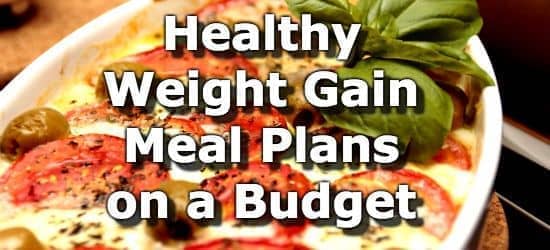 Next ➞
Next ➞
